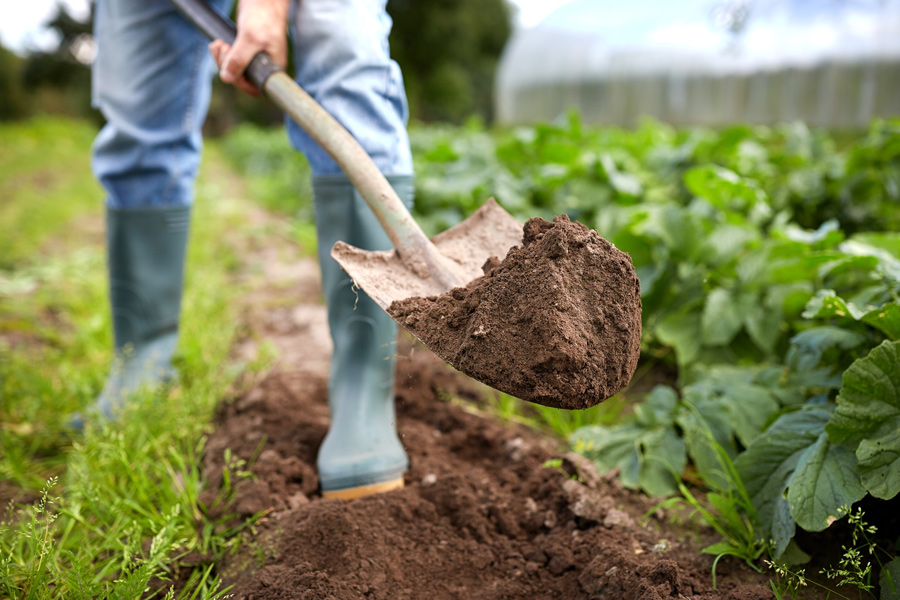UK fruit and vegetable producers lead the way in delivering sustainability
9th April 2020
43% of UK fruit and vegetables are being produced sustainably to the LEAF Marque Standard, it was revealed as LEAF (Linking Environment And Farming) announces its latest global impacts.
Key achievements include:
- 43% of UK fruit and vegetables are grown by LEAF Marque certified businesses
- 936 LEAF Marque certified businesses
- 27 countries with LEAF Marque certified businesses
- Total global hectarage of 358,455 hectares covering 147 different crop types and livestock classes
- LEAF Marque certified farmers making positive changes to their farming operations, which in turn are helping to reduce their overall carbon footprint.
- 462,487 in-field trees, 7.1 million metres of hedges; 234,503 metres of habitat banks; and 1,444 ponds on LEAF Marque certified businesses
Launching its eighth Global Impacts Report, the sustainable farming organisation said it was continuing to see steady growth in the uptake of LEAF Marque certification in the UK, particularly within the horticulture sector, with 95% of lettuce, 93% of leeks and 92% of asparagus being grown on LEAF Marque farms.
LEAF also revealed that it is continuing to consolidate its strong position in the cereals and horticulture sectors and that real progress is being seen in the livestock sector.
The total number of LEAF Marque businesses in all sectors across the globe now totals 936 covering 358,455 hectares. Arable and horticulture remain the two largest sectors amongst LEAF Marque certified businesses at 168,560 hectares and 166,652 hectares respectively. Other growth areas include grassland and biofuels. Engagement with LEAF Marque across Europe remains strong with certified crop area in the UK and France increasing since last year.
Tom Green, LEAF Marque Chairman commented:
“LEAF Marque certification, built around the whole farm system of Integrated Farm Management, is a powerful catalyst for change. By working with farmers to reward and incentivise change, and with retailers and consumers to ensure a market for environmentally sustainable food, we are uniquely positioned to link landscape health with people’s lives and plates.
I would like to thank our many supply chain partners and farmers, whose commitment and leadership enables us, together, to continue to “raise the bar” for the good of our planet and future generations.”
The report also shows how businesses are following the sustainable farming practices of LEAF’s Integrated Farm Management (IFM), which underpins the LEAF Marque Standard. 41% of LEAF Marque certified businesses record Soil Organic Matter, over half (51%) carry out all eight aspects of Integrated Pest Management and 54% are working with others at a catchment level to improve water quality and management. 54% have one or more types of renewable energy generation on farm and 36% use a carbon footprint tool.
Landscape and Nature Conservation is a key part of LEAF’s IFM. On average, 13% of land on LEAF Marque certified businesses is currently used as habitat for wildlife. The organisation also reports a year on year increase in the number of trees being planted on LEAF Marque certified businesses (462,487) and 7.1 million metres of hedges, supporting plants, insects, bird and mammals.
Another area of LEAF’s IFM is Community Engagement. As well as the annual LEAF Open Farm Sunday, LEAF Marque businesses hold visits and events off farm throughout the year. In the past 12 months, LEAF Marque certified businesses communicated sustainable food and farming to a total of 58, 657 visitors.
Jenny Clark, Assurance Manager at LEAF concluded:
“We are incredibly proud of the progress LEAF Marque farmers continue to make in delivering more sustainable farming and to reduce their carbon footprint by minimising energy use, reducing waste, recycling products and taking proactive steps to boost biodiversity.
“They are collecting rainwater for irrigation and recycling water by filtering and purifying with UV light, they are measuring the organic matter status of their soils as well as diversifying into renewable energy, producing electricity, heat and transport fuels. They are implementing measures to optimise the health and welfare of their livestock. They are investing time in building closer and richer links with their local communities. Overwhelmingly, the message of our latest Global Impacts Report is one of transformation and positive change. We congratulate and thank them all.”
To see the full Global Impacts Report and Summary, visit www.leafuk.org/about-leaf/our-impacts.

